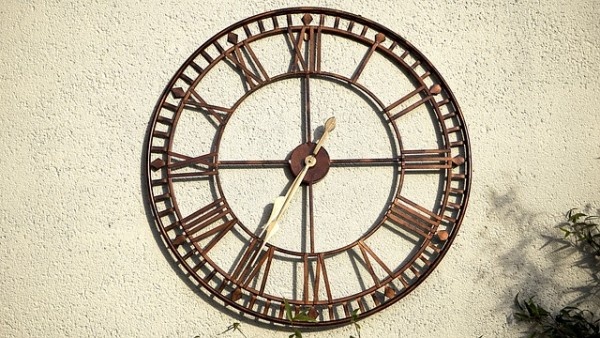By M. Abad, | March 12, 2017

Daylight Saving does not actually lengthen the time time of the day, but adjusts it according to the lunar tidal cycle and the direction that Earth is rotating under the sun.
It's almost the time to adjust clocks in the United States in preparation for the impending daylight saving time. While it has become a natural occurrence in the states, many have not adjusted to the practice.
One of the notorious setbacks of adjusting the time include accidents on the road. In a statement by CHP Commissioner Joe Farrow featured on The Union, he said "When clocks are set forward in the spring, people often lose an hour of sleep. Drowsy driving can have the same effect on a person as drinking alcohol, with equally deadly consequences. The skills required to be a safe driver are significantly reduced when you have not had enough sleep."
Like Us on Facebook
Most parts of the United States adjust their times beginning at 2:00 am on the second Sunday of March for Daylight Saving Time. Each time zone in the US have its own time to adjust and the Daylight Saving Time normally ends on the first Sunday of November.
According to WeExhibits, "In the U.S., clocks change at 2:00 a.m. local time. In spring, clocks spring forward from 1:59 a.m. to 3:00 a.m.; in fall, clocks fall back from 1:59 a.m. to 1:00 a.m. In the EU, clocks change at 1:00 a.m. Universal Time. In spring, clocks spring forward from 12:59 a.m. to 2:00 a.m.; in fall, clocks fall back from 1:59 a.m. to 1:00 a.m."
Daylight Saving in the United States does not actually lengthen the time of the day, but adjusts it according to the lunar tidal cycle and the direction that Earth is rotating under the sun.
-
Use of Coronavirus Pandemic Drones Raises Privacy Concerns: Drones Spread Fear, Local Officials Say

-
Coronavirus Hampers The Delivery Of Lockheed Martin F-35 Stealth Fighters For 2020

-
Instagram Speeds Up Plans to Add Account Memorialization Feature Due to COVID-19 Deaths

-
NASA: Perseverance Plans to Bring 'Mars Rock' to Earth in 2031

-
600 Dead And 3,000 In The Hospital as Iranians Believed Drinking High-Concentrations of Alcohol Can Cure The Coronavirus

-
600 Dead And 3,000 In The Hospital as Iranians Believed Drinking High-Concentrations of Alcohol Can Cure The Coronavirus

-
COVID-19: Doctors, Nurses Use Virtual Reality to Learn New Skills in Treating Coronavirus Patients







